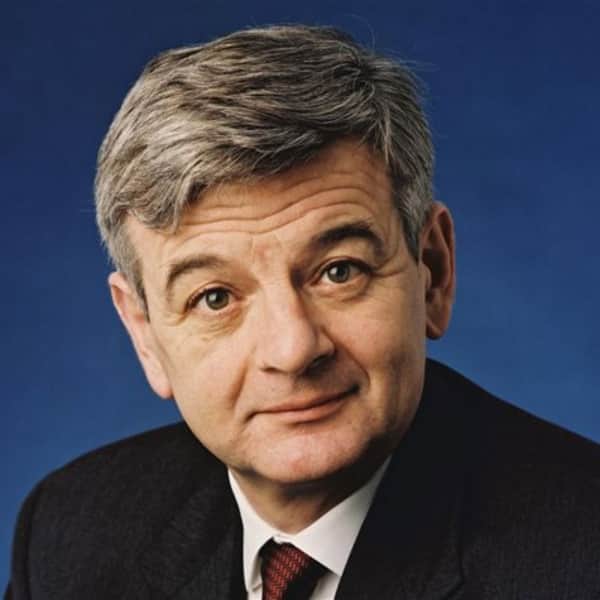Erdoğan Comes in from the Cold

BERLIN - Around this time a year ago, very few people put much stock in Turkish President Recep Tayyip Erdogan's political future. Persistent hyperinflation was wrecking the Turkish economy, and the country was playing host to millions of Syrian refugees with no real chance of returning home. Then came the devastating earthquake this past February, which killed tens of thousands of people, completely overwhelmed local institutions, and exposed endemic corruption.
Moreover, since the failed coup in July 2016, Turkey has become increasingly authoritarian. There is still no prospect of solving the Kurdish question and ending the war against the Kurdistan Workers' Party (PKK), and anti-terror laws and a compliant judiciary have given Erdogan powerful instruments for suppressing any kind of opposition. For years, these domestic developments spelled trouble for Turkey's relationship with NATO and the West.
The government's 2017 decision to purchase a Russian S-400 air-defense system seemed to augur the end of US-Turkish arms cooperation; and by that time, its rapprochement with the European Union had almost completely stalled. Many Westerners anticipated that Erdogan might finally be defeated in the recent national elections. But Erdogan won the presidential election decisively in the second round.
Equally important, fundamental changes to the pan-European order since Russia's full-scale invasion of Ukraine in February 2022 have strengthened Erdogan's hand.
Advertisement:Following the S-400 purchase, Turkey's close relations with Russia had raised doubts about its loyalty as a NATO member. In response, the US canceled a pledged delivery of six F-35 fighter jets, while following through on a similar delivery to Greece, Turkey's neighbor and longstanding adversary. Finland and Sweden's applications for NATO membership then brought matters to a head, with Turkey blocking Sweden's accession on the grounds that it has provided refuge for PKK members.
Over the past year or so, however, Erdogan had already been quietly re-engaging with the West and serving as a mediator between Ukraine and Russia in the (recently suspended) agreement to permit Ukrainian grain shipments across the Black Sea. One can assume that this deal between the warring parties did not come about without the US's approval. Then, at the recent NATO summit in Vilnius, Erdogan finally withdrew his veto of Sweden's accession, apparently in exchange for a US promise to sell his government F-16 fighter jets.
Even more to the point, he joined the rest of the alliance in voicing support for Ukraine's future membership. With these moves, Erdogan has fully rejoined the Western convoy, much to the Kremlin's dismay. Turkey has since even sought to calm its highly charged relations with Greece.
Rather than ratcheting up tensions with its neighbor (and NATO member) in the Aegean and the eastern Mediterranean, it is now pursuing rapprochement and cooperation. The Ukraine crisis and the recent election seem to have led Erdogan and his advisers to reassess Turkey's geopolitical position. When it comes to security, they clearly see no serious alternative to NATO and the relationship with America.
Likewise, in the face of persistent economic crises and inflation, stronger ties with the EU have much to offer. That said, it would be a mistake to think that Erdogan or his regime has changed. Politicians in European capitals and in Brussels must never forget who they are dealing with.
But nor can they ignore Turkey's geographic location and geopolitical significance. Among other things, Turkey controls Russia's access to the Middle East and the eastern Mediterranean (by way of the Bosphorus). It is a major player in the Near and Middle East, Central Asia, the Caucasus, and the Balkans, and it has significant influence over large Turkish minorities in key EU member states.
The EU remains highly dependent on Turkey to host millions of refugees who would otherwise seek to enter the bloc. For all these reasons, Turkey's strategic importance for Europe is hard to overstate. But as Erdogan showed when he blocked Sweden's NATO membership, he is not above engaging in extortion and other hardball tactics to advance his aims.
Nor can he be counted on always to act wisely. His attempt to link Sweden's NATO application to Turkey's EU accession, for example, was downright foolish, because it reminded Europeans that Turkey really does not belong in the EU. Still, European leaders will have to work with Erdogan whether they like it or not, because Turkey is too important to be ignored.
Cooperation is best confined to issues of mutual interest, such as security and migration. To be sure, economic relations also might be improved. Turkish access to the EU common market, customs union, and visa-free travel zone could be negotiated as part of a broader reassessment of relations.
But full EU membership is out of the question. While the war in Ukraine has made it clear that Turkey and Europe cannot do without each other, Erdogan's behavior has underscored just how different the EU and Turkey are. Given Turkey's size and importance, these differences must be managed, because they cannot be ignored.
One way or another, the reshaping of EU-Turkish relations will play a significant part in the realignment of the European order following Russia's war of aggression. Joschka Fischer, Germany's foreign minister and vice chancellor from 1998 to 2005, was a leader of the German Green Party for almost 20 years. Copyright: Project Syndicate, 2023.